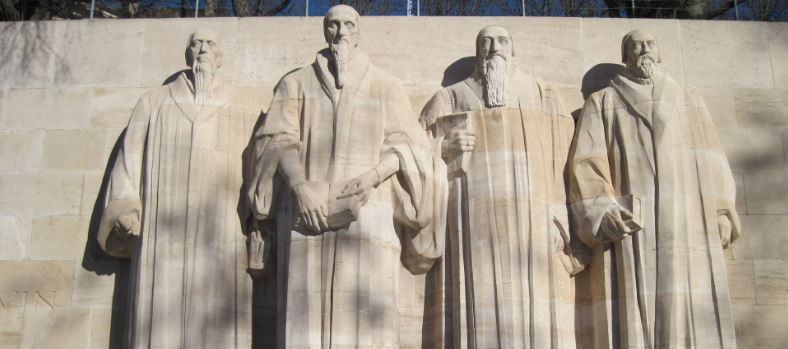
by G. D. Andreano
The Problem of Private Interpretation
“Submit yourselves one to another in the fear of God.” – Eph 5:21
Another major problem Protestantism perpetuates is the blindness to the existence of an interpretation, thanks to doctrines like sola scriptura. Because Protestantism puts no real authority in something outside of itself (Ecumenical Councils, Fathers, etc.), Protestants seem to think that everything they understand the Bible to be saying, is what the Bible is saying. This makes their interpretation gospel. Paired together with the idea that the Bible is the “intrinsically authoritative Word of God” this is a disastrous combination, because it actually means that the reader’s interpretation is the Word of God. However, the readers themselves don’t perceive their own theological arrogance.
This plays out in multiple ways, but the Eucharist is one example. I read one argument that said Roman Catholicism is unbiblical and anti-gospel because they believe the Eucharist is something more than mere symbol. This rhetoric reveals how it presupposes the Bible is self-interpretative. It believes that every scripture is explicitly clear and self-evident, which makes the reader’s hermeneutic automatically valid, which then makes every opposing interpretation a misinterpretation, simply because it is foreign to the individual reader. To these readers,
“the Bible says nothing mystical about the Eucharist”
because their understanding of the Bible says nothing mystical about the Eucharist.
Another way this plays out is in the Protestant accusation of heresy. How can a Protestant call someone a heretic without borrowing a non-Protestant standard of authority?
1. If one is a heretic because they do not agree with “the Bible” (aka: the reader’s interpretation of the Bible), then that is a subjective double-edged standard of heresy, for it is applicable in both directions. Interpretation is not intrinsically authoritative simply because it uses Bible verses, because even the devil does this much (Matt 4:6). There must be a historical, interpretive and authoritative lineage to determine what interpretation is or is not “orthodox.” I would argue this void in interpretive authority is to be filled by the whole Orthodox Church across the ages since the time of the Apostles, not any one individual who may be a respected or popular theologian. This would include even the great C.S. Lewis.
2. If one is a heretic because they are in theological conflict with the early Church Fathers and Ecumenical Councils, then it is an authority that is borrowed from the Orthodox Church, and one should be consistent and agree with all that they say. Picking and choosing what you want to believe further points to yourself being your own authority.
Therefore, I have discovered that interpretative tradition is important. Whether one acknowledges it or not, everyone has such a tradition. No Christian exists in a tradition vacuum. One’s understanding of “what the Bible says” comes from a lineage of prior generations saying those same things. It is either that, or you create your own interpretative tradition through individualistic arrogance (like Mormon founder Joseph Smith).
Honest Christians cannot ignore historical continuity, because that will validate or invalidate what one believes. The difference between orthodoxy and heterodoxy is not ‘Bible’ and ‘not Bible.’ Rather, it is a battle of interpretations.
Read Part 7: The Problem of Heresy HERE

Leave a Reply